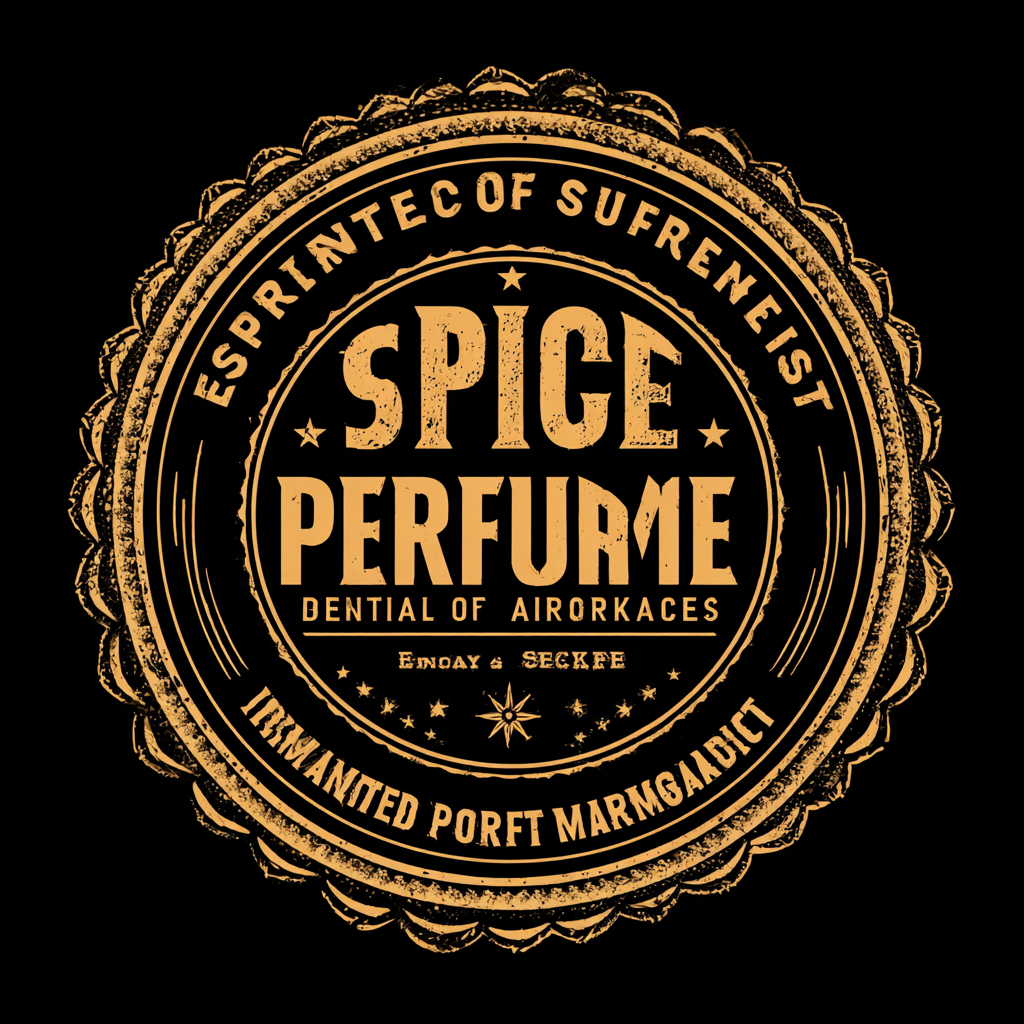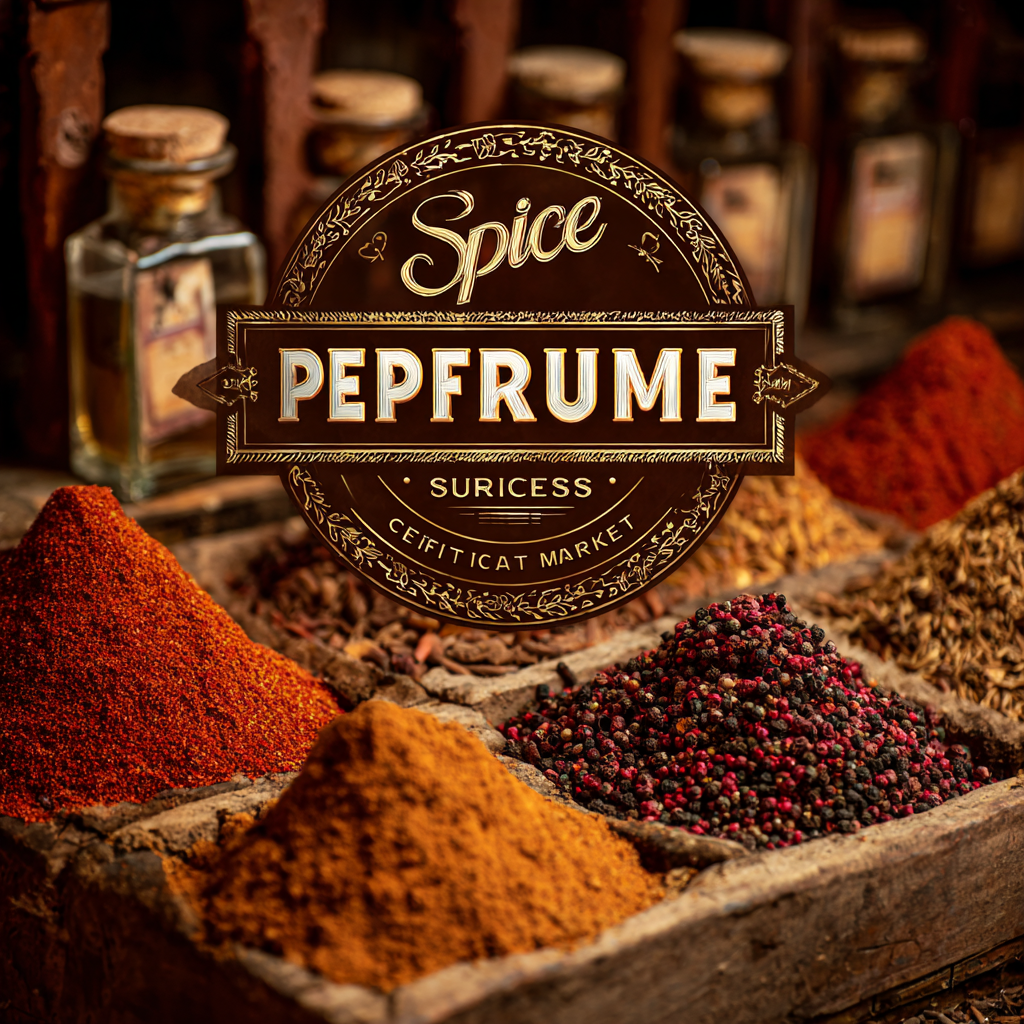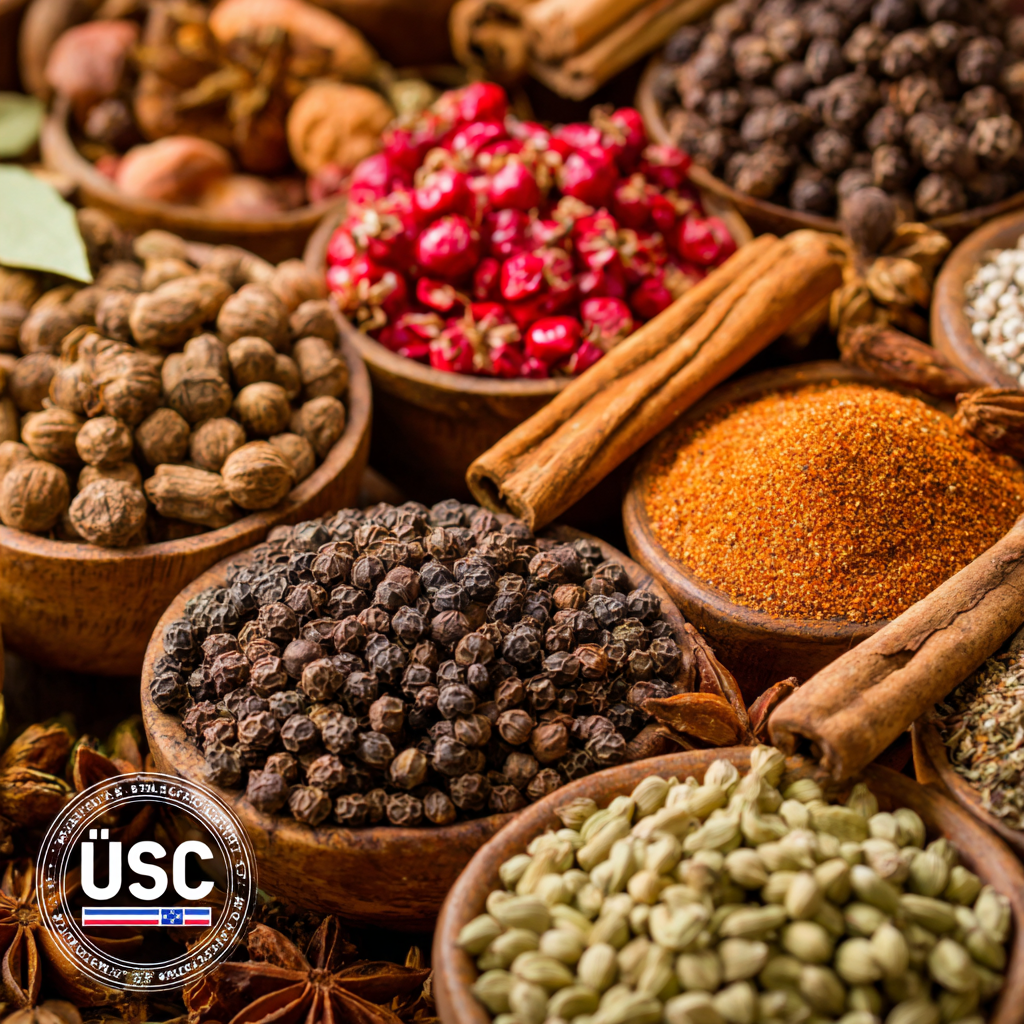
Unlocking Success: 7 Essential Import-Export Certifications for the Best Spice Perfume Market
In recent years, the global market for spice perfumes has witnessed remarkable growth, driven by increasing consumer interest in natural and exotic fragrances. According to a report by MarketsandMarkets, the spice fragrance market is projected to reach USD 3.2 billion by 2025, growing at a CAGR of 8.5% from 2020. This surge highlights the growing demand for unique scents derived from spices, which not only invigorate the senses but also carry cultural significance. However, to navigate this burgeoning market successfully, import-export businesses must obtain essential certifications to not only comply with international trade regulations but also assure quality and safety to consumers. This blog explores seven essential certifications that play a crucial role in unlocking success within the competitive landscape of the spice perfume industry, ensuring that entrepreneurs can thrive in a market characterized by both opportunity and complexity.

Navigating the Global Spice Market: Key Import-Export Insights for Success
Navigating the global spice market requires a keen understanding of both the complexities of import-export regulations and the specific certifications that validate product quality. For entrepreneurs looking to make their mark in the spice perfume sector, obtaining essential certifications can significantly enhance marketability and consumer trust. These certifications not only denote compliance with international standards but also showcase a commitment to quality and sustainability, vital in a market where consumers are becoming increasingly discerning.
As you venture into this aromatic industry, it's crucial to keep abreast of the certification requirements specific to various regions. This might include organic certifications, fair trade compliance, and food safety standards, all of which can vary significantly across borders. Understanding these requirements will not only streamline your export processes but also position your products appealingly in a competitive marketplace. By investing time and resources into obtaining the right certifications, you'll not only unlock success for your brand but also contribute to a more transparent and ethical supply chain in the global spice market.
The Role of Certifications in Enhancing Spice Quality and Safety Standards
In the competitive landscape of the spice perfume market, certifications play a pivotal role in ensuring that products meet stringent quality and safety standards. According to a report by Grand View Research, the global fragrance market is projected to reach USD 52.4 billion by 2025, with a growing demand for natural and organic ingredients. This rising trend emphasizes the need for comprehensive certifications, such as the ISO 22000 for food safety management systems and the GlobalGAP certification, which ensures sustainable agricultural practices. These certifications not only enhance consumer trust but also facilitate compliance with international regulations.

Moreover, certifications like the Fair Trade and Rainforest Alliance certifications are increasingly critical. They not only ensure fair labor practices but also promote environmental sustainability, which is becoming a significant selling point for consumers. A study by the Nielsen Company revealed that 66% of global consumers are willing to pay more for products from brands committed to positive social and environmental impact. Hence, investing in certifications is not just about compliance; it's about unlocking new market opportunities and driving growth in the spice perfume sector by aligning with consumer values and ethical practices.
Market Trends: Growing Demand for Exotic Perfumes in the Spice Sector
The fragrance industry is undergoing a remarkable transformation, with a significant shift towards exotic and spicy scents that captivate consumers. Driven by a growing demand for unique olfactory experiences, perfumers are increasingly turning to spice-inspired ingredients. This trend reflects not only a desire for differentiation in a saturated market but also an appreciation for the rich cultural and historical associations that spices evoke.
As consumers become more adventurous in their scent preferences, perfumes that incorporate spices such as cardamom, cloves, and cinnamon are gaining popularity. These ingredients not only add depth and complexity to fragrances but also resonate with the global movement towards authenticity and natural products. Brands that recognize and adapt to this growing trend will have a distinct advantage in the spice perfume market, allowing them to connect with a diverse audience seeking both luxury and uniqueness in their fragrance choices.
How Proper Certifications Can Open Doors to New International Markets
In the competitive landscape of the spice perfume market, possessing the right certifications can significantly expand your business horizons. Proper certifications not only ensure compliance with international trade regulations but also enhance trust and credibility among consumers. According to a report by MarketsandMarkets, the global fragrance market is projected to reach USD 92.74 billion by 2024, with increasing demand for unique scent profiles driving growth. Having recognized certifications can effectively position companies to tap into emerging markets where regulatory adherence is paramount.
Tip: Focus on obtaining certifications such as ISO 9001 for quality management and GMP (Good Manufacturing Practices) to demonstrate your commitment to quality. These certifications can significantly increase your chances of entering new international markets.
Moreover, certifications related to organic and sustainable sourcing, such as USDA Organic or Fair Trade, are becoming increasingly critical. A survey by Statista indicates that 33% of consumers prioritize sustainability when making purchasing decisions. By securing these certifications, you not only cater to the growing environmentally-conscious consumer base but also enhance your brand image globally.
Tip: Explore partnerships with certification bodies that specialize in your specific market segment. This can streamline the certification process and provide additional resources to help navigate international trade requirements.

Building Trust: The Importance of Transparency in Spice Import-Export Business
In the fast-evolving spice import-export business, transparency has become a cornerstone for building trust and securing long-term partnerships. As the Indian spice market is projected to reach USD 61 billion by 2033, businesses must prioritize clear communication and honest practices. Transparency not only enhances credibility but also fosters smoother transactions, as customers and partners are more likely to engage with businesses that openly share product sourcing and quality assurance processes.
**Tips for Enhancing Transparency:**
First, implement a robust tracking system that allows clients to trace the journey of their products from farm to shelf. This visibility instills confidence in your brand's authenticity and responsibility. Additionally, maintain open lines of communication; regularly update stakeholders about production processes, challenges, and triumphs.
Furthermore, actively participate in industry events like the International Spice Conference (ISC) 2025 in Bengaluru, which showcases best practices and facilitates networking. Engaging with peers and experts not only provides insights into market trends but also strengthens your reputation as a trustworthy player in the spice market. By committing to transparency, you will not only gain competitive advantage but also contribute to a more ethical and sustainable spice trade.
